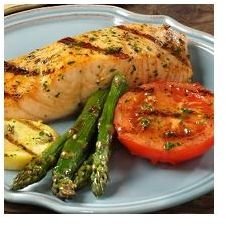Losing Weight During Menopause the Right Way
Menopause and Weight Loss
Losing weight is a hard task, and losing weight during menopause is even harder. An increase in pounds, as well as a change in the shape of the body, is a common occurrence when going through this transition in life. Hormonal changes play a big part in weight gain. Your hormones have a direct impact on your metabolism, appetite and fat storage. The way to lose weight during this challenging time is the same as it is for anyone wanting to lose weight — exercise and a healthy diet. Not only will this help shed the pounds, it will help keep them off.
Diet
One pound of fat contains about 3,500 calories. You can lose 1 pound a week if you decrease your daily intake by 500 calories a day. If you want to lose 2 pounds a week, you will have to decrease your intake by 1,000 calories a day. To lose weight, you will want to consume fewer calories than you expend. This calorie calculator can estimate the amount of calories your body uses a day. If you burn 2,000 calories a day, you will want to eat 1,500 calories a day to lose 1 pound of fat in a week’s time. Losing weight can be a long process. According to Michigan.gov, you should not eat fewer than 800 calories a day. Too low of an intake can cause your body to go into starvation mode. Starvation is unhealthy and an ineffective way to lose pounds.
Eat a well balanced diet. Eat lean meats and add healthy fish like salmon to your diet a couple of times a week. Eat whole grains instead of refined grains. Eat low- or no-fat dairy products, including yogurt. Eat plenty of fruits and vegetables, which are low in calories and high in fiber. Fiber is not digested so it creates a feeling of fullness without adding the calories. Nuts and legumes are also high in fiber. Nuts are high in calories so you will want to eat them in moderation. Avoid fried foods and greasy foods. Avoid or greatly limit sugary foods, processed foods and alcohol. Another common problem with women going through menopause is water weight — bloating — so you will want to be careful with your salt intake.
Many healthy foods come without a label stating the amount of calories per serving. Websites like Self Nutrition Data can provide the information you need.
Exercise

Exercise burns calories. You need to take this into consideration when counting calories. Exercise also helps build muscle mass, which naturally diminishes with age. Weight-bearing and resistance exercises are a good choice for women going through menopause because they can help prevent osteoporosis. Weight-bearing exercises such as walking, jogging and stair climbing create stress on the bones, improving calcium absorption and stimulating new bone growth. Resistance exercises like weight lifting stimulates bone growth by muscle pulling against the bone.
Exercising is not the only way to burn those extra calories. For instance, you can start a garden growing your own organic fruits and vegetables. According to the calculator on Health Status, a 140 pound woman can burn 172 calories gardening for 30 minutes.
Conclusion
Losing weight during menopause can be challenging but you do not want to think of it as a dreaded process. Make it fun, be patient and know how healthy you will become. A healthy body can also help fight many other problems associated with menopause such as fatigue, mood swings and hot flashes. If you follow the above information and are still unable to lose the pounds, visit your health care provider to rule out the possibility of hypothyroidism, a condition frequently seen in women as they age.
References
Medline Plus: https://www.nlm.nih.gov/medlineplus/ency/article/001940.htm
Mayo Clinic: https://www.mayoclinic.com/health/menopause-weight-gain/HQ01076
Web MD: https://www.webmd.com/menopause/guide/menopause-weight-gain
Michigan.gov: https://www.michigan.gov/surgeongeneral/0,1607,7-216-33084_33098-103159–,00.html
Photo Credit:
